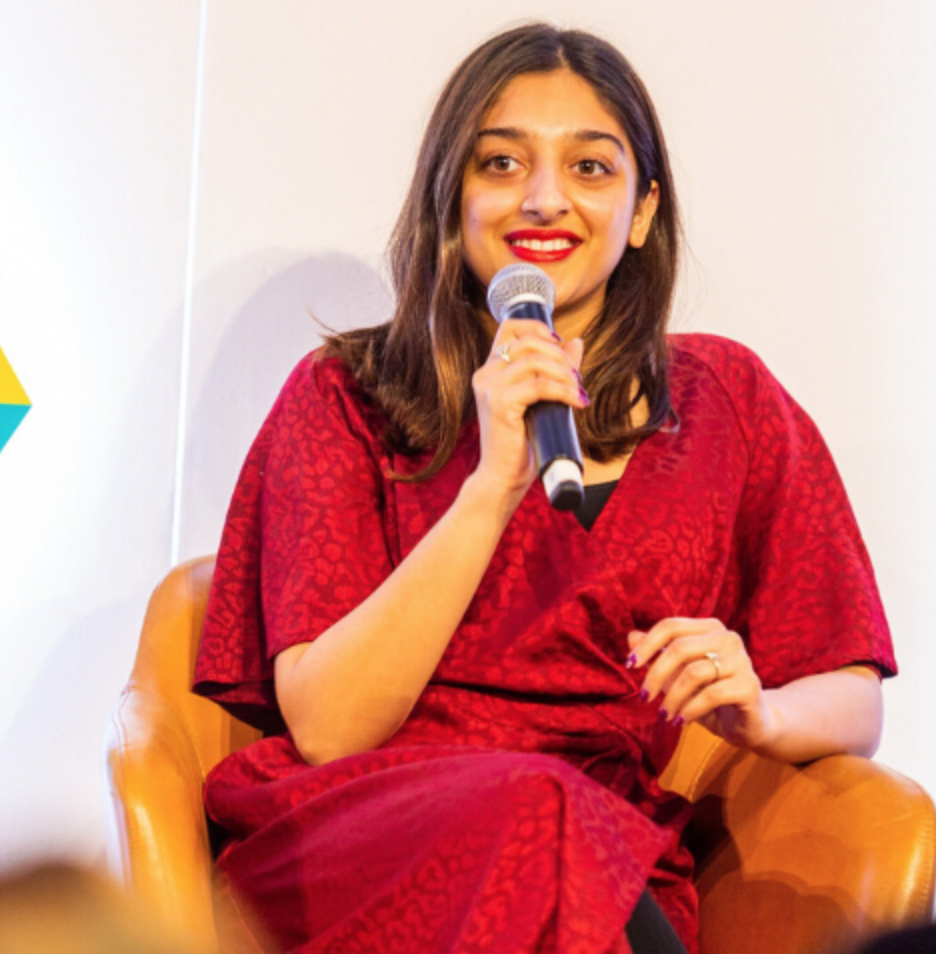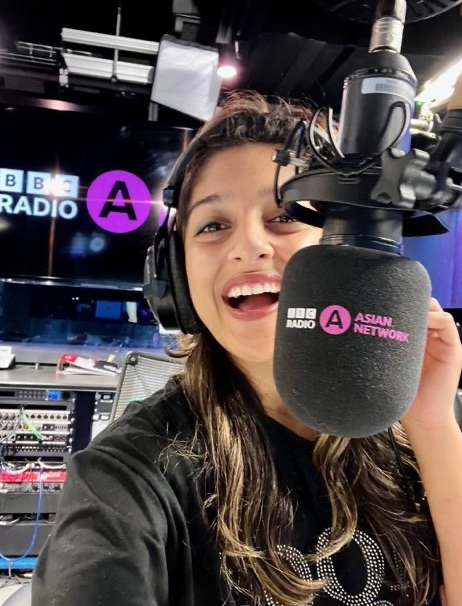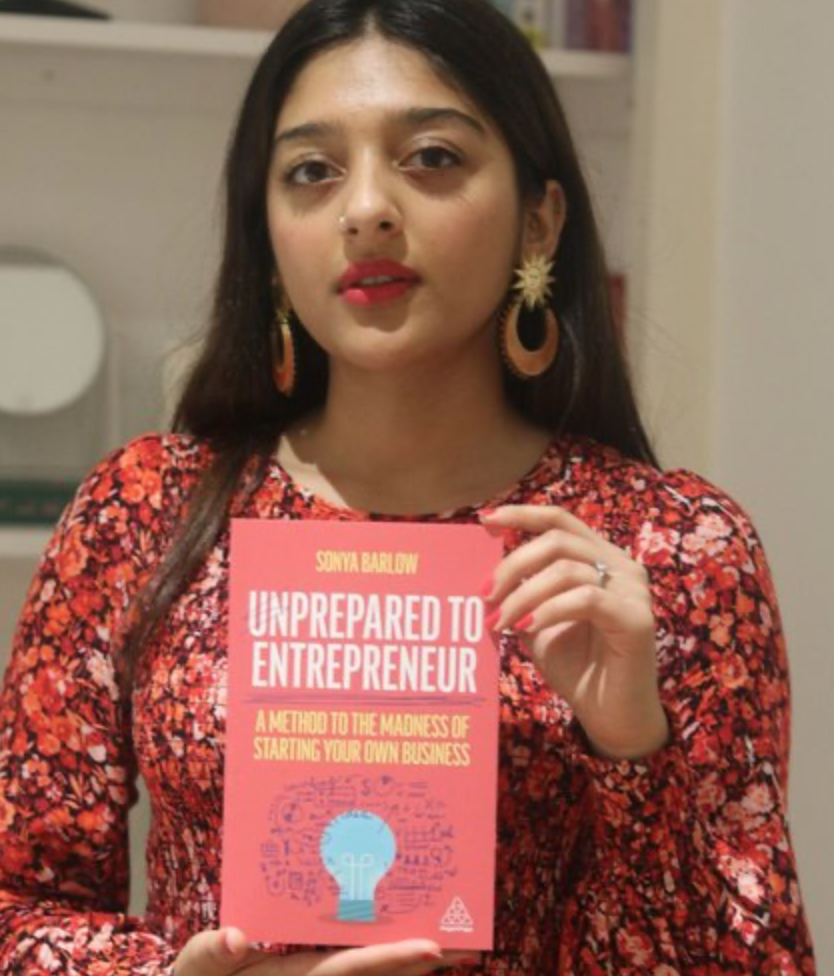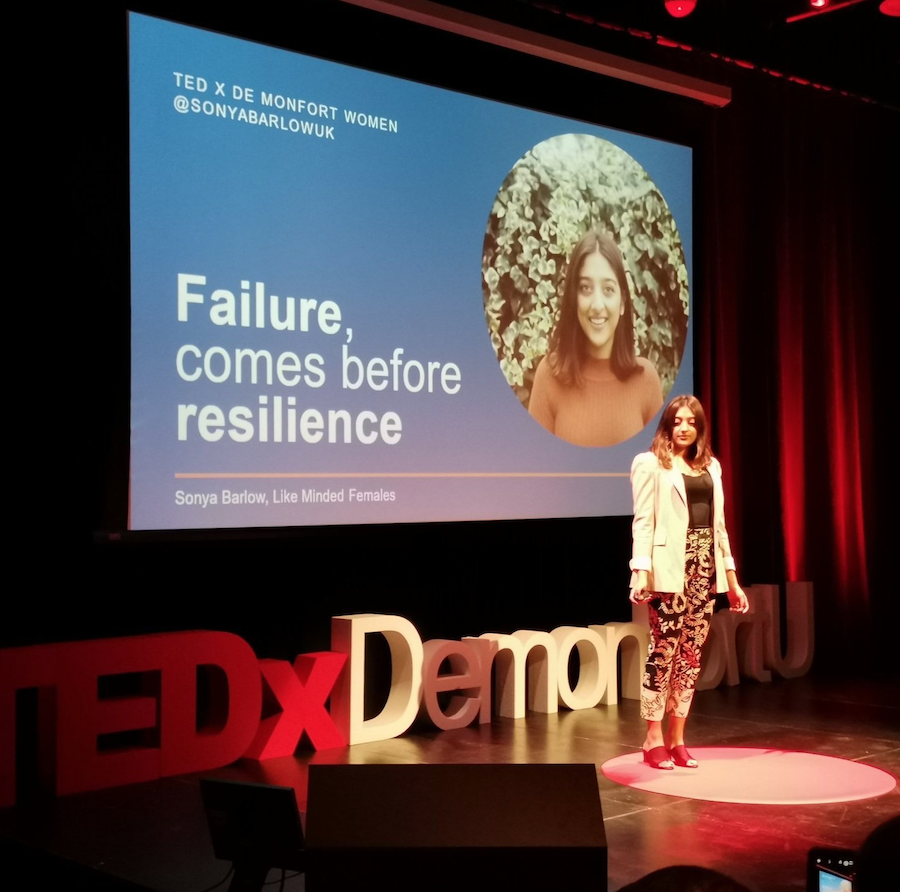P H E N O M E N A L W O M E N
Interview Series
S O N Y A B A R L O W

Entrepreneur, Author & CEO LMF Network, a public speaker, BBC Presenter
Florian Host: Welcome to the Phenomenal Woman Interview Series, a series powered by Florian London to celebrate, highlight, and put the spotlight on women doing phenomenal things in their chosen fields. Today, we have Sonya with us. Sonya can you introduce yourself and tell us a bit about what you do.
Sonya Barlow: My name is Sonya Barlow. I am an award-winning entrepreneur, I run the LMF network, which is a cross platform and inclusion consultancy. Our mission is to bridge the careers gap and to build the careers and confidence of 25,000 people by 2025. Outside of that I am a BBC radio presenter, a best-selling author, a content creator, and generally a public speaker. So, I am super, super excited to be here. And just the fact that you have recognized me as a phenomenal movement woman just means that I must be doing something right.
Florian Host: Indeed, of course, Sonya So my next question is What motivated you to do what you do?
Florian Host: I love the background that you have given to us. My next question is what drives you to push for diversity and inclusion?
Sonya Barlow: The interesting thing is I didn’t know like; diversity inclusion was a thing until people started saying it was a thing. Like I have always just been an activist. I don’t like people telling me no, firstly, like, are you my mom or dad? Like, don’t tell me No. No, as in not right now. I think the second thing is I have been in so many spaces where you are pushing aside, or you will see this the other. And interestingly, when I was at university, I did a dissertation on the perceptions or nonconformity in the interview rounds and finance which sounds like it’s a lot but basically what that meant is if I am coming into an interview round with an eyebrow piercing or with a nose piercing or really bright tops, how can you judge me based on my identity and what I am wearing and how I look why not actually judging me on the experience that I have? And I found that there was an anomaly. So, I didn’t know DNI was a thing in 2015. When I did my dissertation, I was just super passionate about something which I would see and experienced myself. And it wasn’t until I got into the workspace where DNI roundtables, DNI woman groups, I will say, “Great, but what are you actually doing?” They have got no budget; they have got no actual execution. But apparently they have got all these awards make them look good. And I think at some point, I was just tired of people not being real, tired of the fakeness, that comes with being an industry and expect it to show up as their versions of their best selves. And yet, they are saying you have to be authentic. And, honestly, I am me, I have always been me. So, to some extent, I absolutely pretended and conformed to the industry of tech, especially. And then one day I kind of woke up and I was like, this is my version of me, because you said I couldn’t be myself at work. They didn’t like my version of me. They weren’t ready for it. I was ambitious, I was opinionated, I saw the gaps, and they wanted to really fill them in the way they could. And so I think I am super passionate about diversity inclusion, because for me, it’s not a fad. It’s not a buzzword. It’s not something that’s on Google, it basically means that young women like me, young individuals, like me, individuals like me, who maybe don’t even look and feel like me, but can understand what I am saying they can be in spaces in which they didn’t even dream about in on the media, they didn’t even consider they had space where they can use the skills that they thought once were not strengths to really lead and guide them. And I am passionate about making sure that people live their best versions of their lives in their measure of success. That’s really important. My measure of success is not to chase money. I had money, I had a lot of money, more money, more problems, honestly, it’s really real. My measure of success is to have freedom. And I think a lot of people don’t understand that, right? Like being able to do this on a Sunday, I like to talk to my calendar and do what I want. I want to be able to be in spaces where inclusion is actually an action point or an activity, not just something you tick a box and you see now we are inclusive, but actually you go on their stakeholder charts and they still look and feel the same. Because ultimately you are there for not creating something for the Masters, your customer, which is us. I am passionate about what…

Florian Host: I can just tell that you are passionate about creating the LFM network. A lot of women will listen to this. And like what you mentioned, you believed in yourself and you took a chance on yourself. But people tend to have what we call impostor syndrome. “Am I good enough? How would you advise somebody that has impostor syndrome to overcome it?
Sonya Barlow: Such a great question. I think I had a lot of impostor syndrome. But my first question to everyone is, are you actually an imposter or are they making you feel like one? When I went into the world of work. Actually, I walked in me with this, and I have done my degree, student loan, I did the interview, I deserve this job. I negotiate my pay. And I walked into work. And they were like putting all these labels on me or they were saying, you are an imposter. And I started to believe them. And then one day, I said, Wait, hold on. But why are you saying that to me? Because I have actually been able to work hard for everything I have achieved. It’s not lucky girl syndrome, it’s not like I manifested something and it happened, it’s hard work. And tenacity is overcoming failure and being resilient constantly. I think the second point I would say is, you have impostor syndrome, when I think you don’t have enough self-awareness or ability in yourself to reflect on your skills. I am using the skills that I have, wonderfully being given and being supported. Now, these are the same skills that once upon a time someone said it was too much. Yeah, I am a public speaker, by trade, I have a radio show, I have a book, I do this wonderful stuff where I can use my voice. But not everyone’s gonna get it as long as you get it. I think otherwise, to overcome impostor syndrome, you have to surround yourself with a good circle. So, you find your mentors, your allies, your advocates, you have to make sure that you understand you on what you consume. So if you are feeling terrible, and you are going online or doing scrolling, or you are following terrible content, or you are not looking at the right hashtags is going to make you feel worse about yourself. I mean, impostor syndrome, in summary, is a feeling it’s not a fact. It was a term that was created to put a label on high achieving women, and over 70% of us feel like imposters, but again, I would have asked you, “Are you an imposter or is it because the system was making you do it?”
Florian Host: I mean, you touched on being a radio presenter, and I know that some people think radios are outdated. How would you challenge that and especially the impact on minority communities?

Sonya Barlow : Yeah, I think is a great question. So I was very fortunate that in 2021, I was approached by the BBC, and actually, I am the host of the first and only business show on BBC Asian network. Why is that important? It’s important for representation, it’s important to share stories, it’s also important to make sure that we are spotlighting individuals who are doing great things for their community that maybe do the social media following the clout or the PR behind them. I think outside of that, what it also means is that I didn’t actually have radio experience, I didn’t do radio before I went into the BBC. But I knew that I eventually wanted to do radio. So, I have a couple of TED talks, I started using social media to really spotlight my voice , I was interviewing people I was contributing where possible. So I did what one may see a lot of free labor to build up my skill set, but I didn’t believe it was free labor, I think it was skill building and skill swapping and that’s how I look at things. So, when the BBC came along, the funny story is that one, I didn’t think I was gonna get it and two, I was actually paying for a PhD. So I was applying for a PhD in the backwards when the BBC came along to interview me as in I actually had to do an interview like a real job to see if I was the right presenter, or the best presenter. I had no idea that I was going to get it. So, I in my head was going to be Dr. Sonya and like three years, not a radio presenter. And radio, is it outdated? I don’t actually think it is, I think it’s a mass market for individuals who are still going on the radio, listening to the radio, those who are in the cars, those who have access to podcasts. And I think radio itself is live effort and authentic voices, that are being able to kind of share different opinions and thought leadership that you wouldn’t have beforehand. Podcast, for example, edited, you can say what you want, and you can edit it out. Radio still live, and there’s an energy behind it and that’s where it all started. Radio is basically conversation has been had, in which we can where diversity can really be shown because anyone and everyone can get into radio. So, I got rejected from my PhD on a Friday at 12pm and BBC rang me at 3pm. So, in three hours I went from being a doctor to being a presenter and it was wild. And then in 2022, the show that I do the everyday hustle was named that it was awarded the Best radio show in the country.

Florian Host: That’s why we think your phenomenon. Okay, Sonya, I know you have written a book a best-selling book, on preparing to entrepreneur, can you tell us a bit more about your book?
Sonya Barlow: I would love to I mean, let me start by saying I didn’t think I never wrote a book. It was on my bucket list, but not this early. And so it goes back to your question around imposter syndrome and confidence and also diversity inclusion, I started my business in 2020. Not necessarily by choice, but by the circumstance. I needed to do something to make sure that we all had food on the table, and that my parents had a roof over their head. As an eldest child of four, there’s a lot of responsibilities that come with that in the South Asian culture, not responsibilities, I don’t want to take on like, I really do want to take them on. So, at the start 2020, when I started my business, and I went online, especially on Google, no, one story really looked like me. Everybody came from wealth or money or networks, or were just like white middle class men, I was like, this is great for you, but I am not trying to be the next Elon Musk, because that’s really not attainable right now. I am just trying to make sure that I get 30k a year because that was my first grad salary and that’s really what I was aiming for. And so I started doing a lot of research in the background. And I realize there’s not much on social media at that time, or antonym books where you have diversity of stories and circumstances. And a one book, which gives you everything you need in terms of here’s how to use LinkedIn all the way to here’s how to manage your money. Here’s what happens if your mindset isn’t clear all the way to, and here’s someone who got it wrong and how you can overcome that challenge. Because that’s really what I wrote. And the funnyish story is that the way that I got a book deal was that I presented my goal one day to write a book at a workshop that I was delivering our networking. And at the end of the session, one of the attendees said, “Listen, we really liked the way you executed that and based on the way that you executed it and the fact you shared your goal, we actually had have a publisher that we would like to put you in touch with.” It was one of the stations. What was that? Yeah, cool. I had my pitch ready because I knew what it was going to be. And I remember speaking to my commissioning editor, and she was like this, we are not looking for a feminist book, I was like, but it’s not about feminism, it’s about startups to be able to deliver, don’t have to wait to be. And so they said, “We really liked your pitch, can we do a proposal?” So, I sat for the whole weekend, right into proposal down. And my closest loved ones would actually go through my proposal and give feedback. And they are like, this is not great. It’s really not great. Keep this do this. And I did a lot of research. So, when you do any proposal, it’s like, why are you the best person to write the book? What are you bringing to the table? Who are your competitors? what already exists? How are you going to the PR and marketing all the way to how long it’s going to get you? How long are you going to take to write the book? So, I sent it off. I was like, this is what it’s gonna be. I know I can do it. I honestly didn’t think they would say yes. They said Yes, and I signed the contract. And then I realized that I had six months to get this book. So, [Unclear] and going back to imposter syndrome, I thought I can actually impostor. So, I signed the dotted line around October. And the final edit was due in April and October, November, I had brain fog. And I froze up and I was like, I am naturally not a great writer. So, what did I do? I went back to my skills, my skill, I can talk, I can communicate. So I literally used to carry my phone around, go for walks and record myself to the book. So, then what I was doing was changing the grammar and fixing the structures. Well done. Yes. So by January, I basically take myself offline for two weeks, I was only working on my book, and I redrafted it seven times before it came out. So, that’s a lot of the process behind the scenes that people don’t talk about. And, of course, so when it came out, it was natural cushing. It was organic PR; it was advertising through social media. And it was just getting people around you to be excited about being excited about the book. When it came out in like Waterstones and WH Smith...

Florian Host: What advice would you give your younger self?
Sonya Barlow: Maybe I would give three pieces of advice. One, I would say you don’t necessarily have to be a product of your circumstances. And what I mean by that was, I am really blessed that my parents, and my family worked hard to make sure that we were aware that we could move up and level up, even if it was 1% daily. So, I shared the story about me being on a counselor state or I not have so much money when I was growing up. Because I want anyone who’s watching this to think just because you are in that environment does mean that you understand that environment is what you choose to do with it. That helps us and those taught me valuable life skills, like being good to people and networking and building community and being true to yourself, because that’s really where it started. I think outside of that what I would say is your superpower are your skills that probably show up at a spotlight more than you would want them to be. So, I am naturally a great talker when I was younger. That was you are a chatterbox or you are super loud. You like to talk all the time or why did you ask me questions? But why did you interrupt people so much? Actually, what it was I like to communicate. I was super curious. And it was about how you finesse that confidence, right. But when I went to the workspace, I didn’t know that that was my superpower. So, you and your gut know what your superpower is. You just have to be competent.
Sonya Barlow: Just find your superpowers. And everyone has one. And I think the third thing was give everything a go, everything that you want.
Florian Host: Are you working on any exciting projects right now that we should know about or be on the lookout for?
Sonya Barlow : Absolutely. So, I have recently just started a YouTube channel. My comfort zone, it took me six months to do it. But they got to my siblings who were like, there’s no more ways that you can embarrass us, you might as well start YouTube. We started it, it’s doing really well. So I have got a couple of shows coming out. And they are actually a talk show called Tea with Sonya, as well as the LMF podcast, and some great behind the scenes content, including this, behind the scenes blog, as well as some travel blogs, outside of that, and working with a few companies and retail companies to interview them for their early careers, talent, as well as making sure that we can debunk the career into [Unclear] Outside of that, I am working with a couple of retail firms and financial Institute’s to debunk myths in the career journey. So, what that will mean is we are interviewing different stakeholders to make sure that we can amplify their voices and their career journeys for young professionals. And alongside that, honestly, I am just trying to show up as the most authentic and best version of myself as I can in any project. So, this year is all about media presenting, and doing more on the radio, start my talk show series, because so far, no one’s given it to me. So I might as well just start a YouTube channel, and actually just becoming and being what I believe is your biggest cheerleader. So yeah, definitely look up. There’s a lot coming up. I actually can’t say a lot of brand names because of NDA purposes. , I have also just finished my second book proposal.
Florian Host : when is that coming out?
Sonya Barlow : When a publishing house gives me a book deal. So, God willing, that will be this year, too. So let’s look out and see if that works. Because currently, as we speak, my agent is out there talking to publishers. So let’s see if that works or if there’s a big failure, who knows?
Florian Host: Thank you so much, Sonya for sharing so much with us. Thank you for sharing your story. Thank you for your advice to all our readers and listeners. I just want to say you are absolutely phenomenal. I know you personally keep doing what you are doing and Just as Sonya said, is important to show up as your authentic self. Always. Thank you Sonya.

